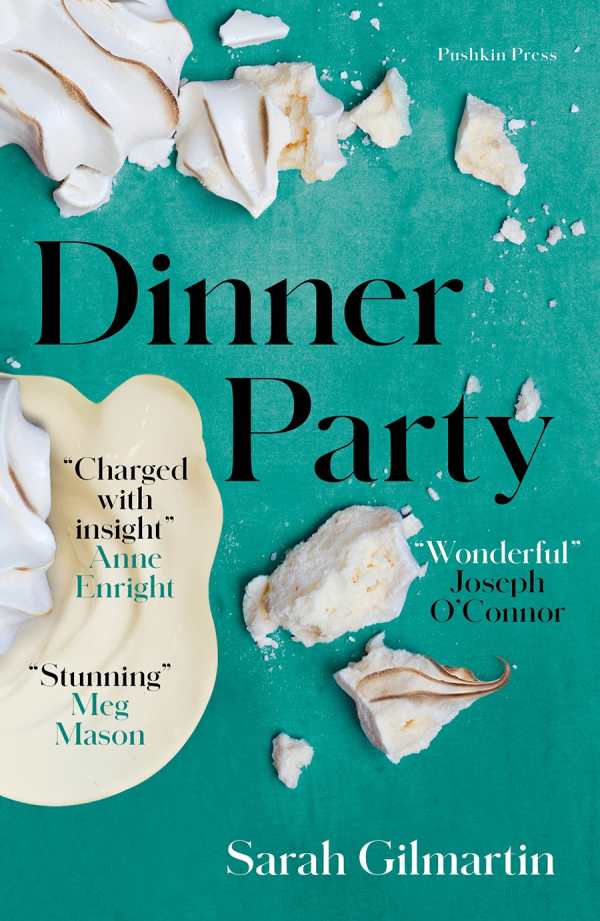Dinner Party
Halloween meals mark the anniversary of a twin sister’s death in Sarah Gilmartin’s novel Dinner Party.
Growing up, Kate thought that people either wore their emotions on their sleeves or suppressed them. Her melodramatic, attention-seeking mother and her rebellious, fun-loving twin sister, Elaine, did the former, she the latter. When Elaine died, Kate drank and starved herself to repress her pain. Her brothers escaped their fractured family life via farm work and material pleasures.
Sixteen years later, a breakup and addictive crises expose Kate’s hidden distress. With the help of her brothers and therapy, she renews her relationship with her mother and tries to regard life with more nuance. But the family’s sixteenth-anniversary game (finding one word to describe themselves) also sets up a search to pinpoint the source of Kate’s troubles. And the dinner itself (featuring Kate’s mother’s biting words, melting baked Alaska, and stories from Kate’s brother’s latest vacation) triggers traumatic memories.
There’s impressionistic coverage of Kate’s drunken, binge-drinking college years and work life in Dublin. Her mounting internal brooding contrasts with household duties and urban chaos. Her brothers anchor her and their mother. The tone rides a fine line between denial and reality. Instead of pinpointing the source of the family’s problems, the book works to open up Kate’s perspective. She learns to enjoy eating alongside enjoying her emotions. Such changes are also reflected in her increasing flare-ups with others—and in the fact that their conversations, once pat and canned, become more candid and raw as the story progresses and as the family members realize that everyone contains a dual identity.
People’s masks slip in Dinner Party, a sedulous novel in which a family confronts its demons with determination.
Reviewed by
Mari Carlson
Disclosure: This article is not an endorsement, but a review. The publisher of this book provided free copies of the book to have their book reviewed by a professional reviewer. No fee was paid by the publisher for this review. Foreword Reviews only recommends books that we love. Foreword Magazine, Inc. is disclosing this in accordance with the Federal Trade Commission’s 16 CFR, Part 255.

